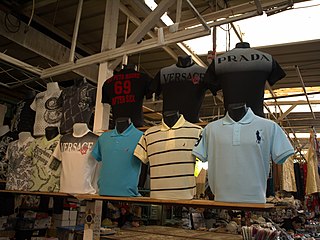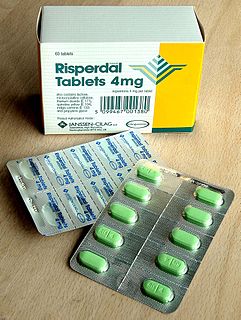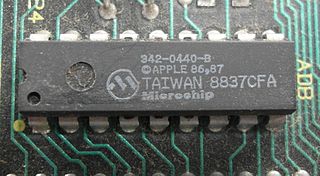
Authentication is the act of proving an assertion, such as the identity of a computer system user. In contrast with identification, the act of indicating a person or thing's identity, authentication is the process of verifying that identity. It might involve validating personal identity documents, verifying the authenticity of a website with a digital certificate, determining the age of an artifact by carbon dating, or ensuring that a product or document is not counterfeit.

To counterfeit means to imitate something authentic, with the intent to steal, destroy, or replace the original, for use in illegal transactions, or otherwise to deceive individuals into believing that the fake is of equal or greater value than the real thing. Counterfeit products are fakes or unauthorized replicas of the real product. Counterfeit products are often produced with the intent to take advantage of the superior value of the imitated product. The word counterfeit frequently describes both the forgeries of currency and documents as well as the imitations of items such as clothing, handbags, shoes, pharmaceuticals, automobile parts, unapproved aircraft parts, watches, electronics and electronic parts, software, works of art, toys, and movies.

Packaging is the science, art and technology of enclosing or protecting products for distribution, storage, sale, and use. Packaging also refers to the process of designing, evaluating, and producing packages. Packaging can be described as a coordinated system of preparing goods for transport, warehousing, logistics, sale, and end use. Packaging contains, protects, preserves, transports, informs, and sells. In many countries it is fully integrated into government, business, institutional, industrial, and personal use.
A taggant can mean a radio frequency microchip used in automated identification and data capture. In such cases, electronic devices use radio waves to track and identify items, such as pharmaceutical products, by assigning individual serial numbers to the containers holding each product. This technology may prevent the diversion or counterfeiting of drugs by allowing wholesalers and pharmacists to determine the identity and dosage of individual products.
Trading Standards are the local authority departments with the United Kingdom, formerly known as Weights and Measures, that enforce consumer protection legislation.

Microchip Technology Inc. is a publicly-listed American corporation that manufactures microcontroller, mixed-signal, analog and Flash-IP integrated circuits. Its products include microcontrollers, Serial EEPROM devices, Serial SRAM devices, embedded security devices, radio frequency (RF) devices, thermal, power and battery management analog devices, as well as linear, interface and wireless products.

The Directorate of Revenue Intelligence (DRI) is an Indian intelligence agency. It is India's apex anti-smuggling intelligence, investigations and operations agency.

The Tilleke & Gibbins Museum of Counterfeit Goods is a museum focused on intellectual property infringement in Yan Nawa District, Bangkok, Thailand. It is operated by Tilleke & Gibbins, a law firm with offices in Thailand and Vietnam. In the firm's Bangkok office on the 26th floor of Supalai Grand Tower, the museum is home to a variety of counterfeit and infringed goods that the firm has accumulated in its work.

Shanzhai is a Chinese term literally meaning "mountain fortress" or "mountain village" whose contemporary use usually encompasses counterfeit, imitation, or parody products and events and the subculture surrounding them. Shanzhai products can include counterfeit consumer and electronic goods, which can involve the imitation and trademark infringement of brands and companies. The term's modern usage grew around 2008 when counterfeit smartphones reached their greatest domestic use. Today, some relate the term with grassroots innovation and creativity rather than with falsehood or imitation.
A counterfeit medication or a counterfeit drug is a medication or pharmaceutical item which is produced and sold with the intent to deceptively represent its origin, authenticity or effectiveness. A counterfeit drug may contain inappropriate quantities of active ingredients, or none, may be improperly processed within the body, may contain ingredients that are not on the label, or may be supplied with inaccurate or fake packaging and labeling. Counterfeit drugs are related to pharma fraud. Drug manufacturers and distributors are increasingly investing in countermeasures, such as traceability and authentication technologies, to try to minimise the impact of counterfeit drugs. Antibiotics with insufficient quantities of an active ingredient add to the problem of antibiotic resistance.
Counterfeit consumer goods are goods, often of inferior quality, made or sold under another's brand name without the brand owner's authorization. Sellers of such goods may infringe on either the trademark, patent or copyright of the brand owner by passing off its goods as made by the brand owner. Counterfeit products made up 5 to 7% of world trade in 2013, and in 2014 cost an estimated 2.5 million jobs worldwide, with up to 750,000 jobs lost in the U.S. About 5% of goods imported into the European Union in 2013 were fakes, according to the OECD.
Brand protection is the process and set of actions that a right holder undertakes to prevent third parties from using its intellectual property without permission, as this may cause loss of revenue and, usually more importantly, destroys brand equity, reputation and trust. Brand protection seeks primarily to ensure that trademarks, patents, and copyrights are respected, though other intellectual property rights such as industrial design rights or trade dress can be involved. Counterfeiting is the umbrella term to designate infringements to intellectual property, with the exception of the term piracy which is sometimes (colloquially) used to refer to copyright infringement.

Christofer "Chris" Toumazou, FRS, FREng, FMedSci, FIET, FIEEE, FCGI, FRSM, CEng is a British Cypriot electronic engineer.
Fake Indian Currency Note(FICN) is a term used by officials and media to refer to counterfeit currency notes circulated in the Indian economy. In 2012, while responding to a question in parliament, the Finance Minister, P. Chidambaram, admitted that there is no confirmed estimate of fake currency in India. However, several central and state agencies are working together, and the Ministry of Home Affairs has constituted the Fake Indian Currency Notes Co-ordination Center (FCORD) to curb this menace.
Counterfeit electronic components are electronic parts that are misrepresented as to their origins or quality. Counterfeiting of electronic components can infringe the legitimate producer's trademark rights. Because counterfeit parts often have inferior specifications and quality, they may represent a hazard if incorporated into critical systems such as aircraft navigation, life support, military equipment, or space vehicles.

Sproxil is an American venture capital-backed for-profit company based in Cambridge, Massachusetts that provides a consumer product verification service to help consumers avoid purchasing counterfeit products. The service was the first Mobile Authentication Service (MAS) to launch in Nigeria. The ISO 27001 and ISO 9001 certified company also offers supply chain protection solutions, mobile-based loyalty and marketing programs, and advisory services.
Trademark infringement is a violation of the exclusive rights attached to a trademark without the authorization of the trademark owner or any licensees. Infringement may occur when one party, the "infringer", uses a trademark which is identical or confusingly similar to a trademark owned by another party, in relation to products or services which are identical or similar to the products or services which the registration covers. An owner of a trademark may commence civil legal proceedings against a party which infringes its registered trademark. In the United States, the Trademark Counterfeiting Act of 1984 criminalized the intentional trade in counterfeit goods and services.
The following outline is provided as an overview of and topical guide to forgery:
The Open Trusted Technology Provider™ Standard (O-TTPS) is a standard of The Open Group that has also been approved for publication as an Information Technology standard by the International Organization of Standardization and the International Electrotechnical Commission through ISO/IEC JTC 1 and is now also known as ISO/IEC 20243:2015. The standard consists of a set of guidelines, requirements, and recommendations that align with best practices for global supply chain security and the integrity of commercial off-the-shelf (COTS) information and communication technology (ICT) products. It is currently in version 1.1. A Chinese translation has also been published.

Scantrust is a Swiss company that provides an Internet of Things platform for connecting products and packaging to the internet using secure unique identifiers, including QR codes with an anti-counterfeiting feature.









